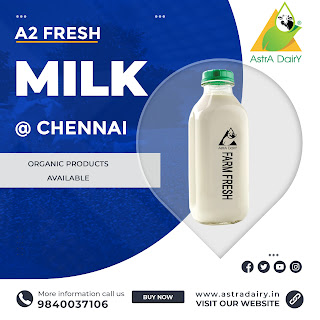Adults Do Not Need Milk, Fact or Myth?
Milk is a very present food in our diet. However, there are those who argue that its consumption in adulthood is counterproductive. To answer this question, it is important to take into account the food culture of each town.
Meat, fish, legumes , cereals , fruits,
vegetables... Our diet is made up of these large food groups, an infinite
variety that allows us to keep our body healthy. However, among all of them,
the first one that slipped through our mouths and through our digestive system
was milk . With her we were breastfed and with her we grew up. But, once they
reach adulthood, there are many who question the value of this food , whose
consumption is even related to an increased risk of suffering from certain
diseases.
At this point, does it make sense to continue
drinking milk as adults? The theory that human beings are the only mammals that
continue to drink milk after breastfeeding and that, therefore, it is not
necessary to drink this drink is not entirely true, argues the expert, who adds
that these are beliefs linked to a type of culture, ideology or religion.
The specialist details that the consumption of
milk in Europe is deeply rooted since the origins of humanity : “The first
hominids already began to drink goat, sheep, donkey or cow milk. Mainly, they
drank it during the day and made cheese with it to preserve it”. On the
contrary, in any part of Asia, such as India, milk is not part of its
gastronomic heritage.
Lactase, an aspect to take into account
The way in which this food is incorporated or not
into the diet of any people will result in possible deficiencies of the lactase
enzyme , which causes the milk sugar, which is lactose , to not be properly
digested . In this sense, it has been verified that in countries that are heavy
drinkers of this food, there is a lower percentage of the population that has
lactase deficiency, while in those other areas where there is no habit of
consuming it, the rate of people with lactase intolerance lactose is higher.
The activity of lactase in the intestine of
mammals decreases throughout life , therefore, "phylogenetically, it It
would be natural to be lactose intolerant, but human beings have a genetic
polymorphism that causes the gene that codes for this enzyme to continue to be
expressed and activity to continue, which allows us to digest lactose
throughout our lives ” .
However, the expert continues, this is not always
the case, and some individuals stop expressing the gene progressively,
decreasing significantly in adulthood. “While in Northern Europe only 5% of the
population presents this intolerance, in Spain it is estimated that it affects
between 20-30%, reaching 75-80% of African-Americans and 95% of Asians ”, She
quantifies.
In any case, the dietitian clarifies that the
level of tolerance or intolerance is individual and is rarely 100% , so we are
normally able to digest small amounts, even if we are intolerant . “This is the
explanation why some people do not tolerate milk, but they do tolerate yogurt
(which usually has only 2.5% lactose),” she says.
“Human beings, through hundreds and thousands of
years, have been adapting their bodies to the food that they culturally eat,”
emphasizes Russolillo. In this way, milk is not a suitable product in the diet
of Oriental people , who are not in the habit of taking it: "They may not
be able to digest the food and tolerate it since they no longer have
lactase."
On the other hand, as already mentioned, in our
country the situation is different and milk is part of our diet, so it is a
complete and healthy food , also in adulthood. López explains that “it presents
very balanced levels of its main components: proteins , carbohydrates and fats .
Therefore, if there is no contraindication, its consumption is recommended
throughout life.”. The specialist states that what our body requires is not
specific foods, but the nutrients they contain and, in the case of milk, it
provides us with essential nutrients that we must provide to the body through
food, since that the body is not capable of synthesizing them on its own.
"These nutrients are needed throughout life,
so if we like milk, and although it is not essential, it is an excellent option
as part of our regular diet ," adds the expert.




Comments
Post a Comment